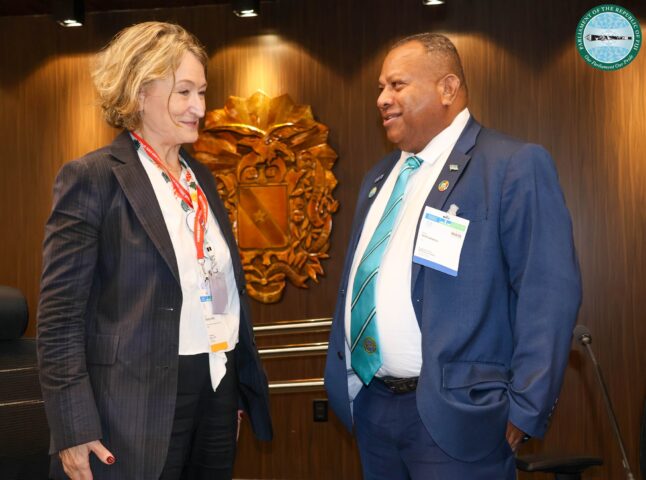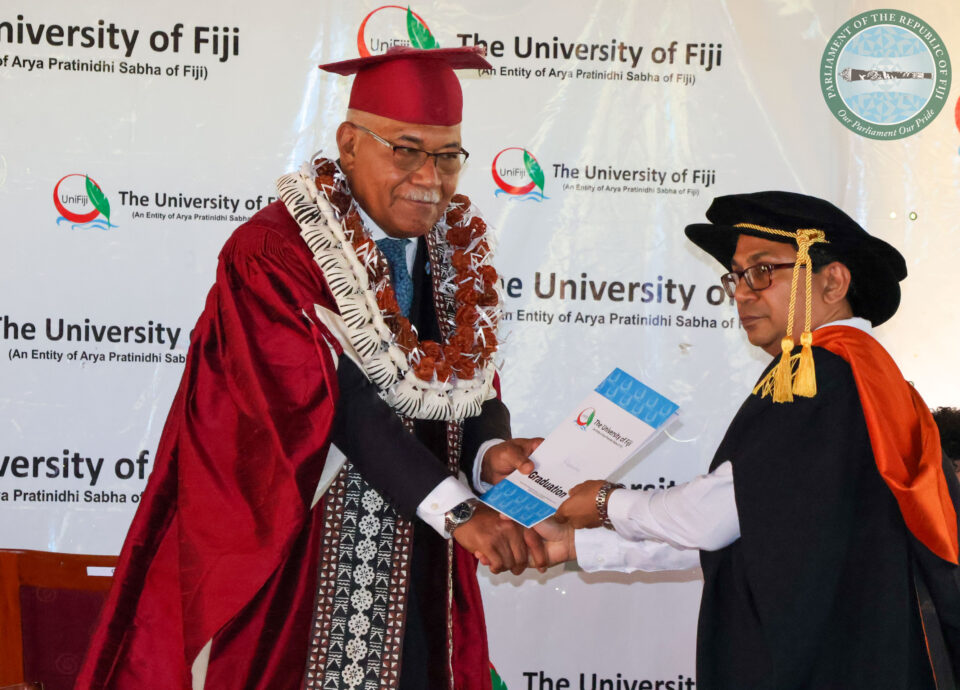Ticker news is only displayed on the front page.
Fiji urges stronger Parliamentary Leadership to Accelerate Climate Adaptation across the Pacific

Belem, Brazil – Fiji has issued an urgent call for Parliaments to lead efforts in accelerating climate adaptation, warning that even minor increases in global temperature dramatically raise the cost and complexity of protecting vulnerable island communities.
Speaking at the panel discussion “Enhancing Resilience: How Can Parliaments Deliver on Adaptation”, Leader of the Opposition the Hon. Inia Seruiratu stressed that achieving the Paris Agreement’s 1.5°C target is critical for the survival of Pacific nations.
“Our future is dependent on the successful delivery of the Paris Agreement’s objectives and its ability to limit global average temperature rise to below 1.5 degrees celsius.”
“Every incremental increase in global average temperature rise increases the costs and reduces the feasibility of robust adaptation solutions for our island communities.”
Fiji’s National Climate Change Act, which declares a climate emergency, was highlighted as a benchmark for integrating climate resilience into governance, budgeting, and investment frameworks.
Hon. Seruiratu outlined three key priorities for parliamentary action:
• Mainstream Climate Resilience: Adaptation must be embedded in all aspects of national planning, not treated as a separate issue;
• Ensure Equitable Access to Resources: Climate justice requires timely access to adaptation finance for frontline communities – especially women, youth, and coastal villages. Parliaments must ensure that funding is effectively deployed and utilised; and
• Strengthen Oversight and Accountability: Parliaments must act as both bridges and watchdogs, ensuring global adaptation goals align with local realities and that international finance supports national priorities.
Hon. Seruiratu concluded: “Our constituents’ voices must not only be heard – they must shape the decisions we make. Adaptation must be at the heart of governance.”
The Parliamentary Meeting at the United Nations Climate Change Conference (COP30) was organised jointly by the Inter-Parliamentary Union (IPU) and the National Congress of Brazil and hosted at the Legislative Assembly of the State of Pará (ALEPA), in Belém, Brazil.
The meeting emphasised the critical role of Parliaments in shaping climate policy and ensuring that adaptation remains central to governance as nations prepare for COP31 and beyond.







